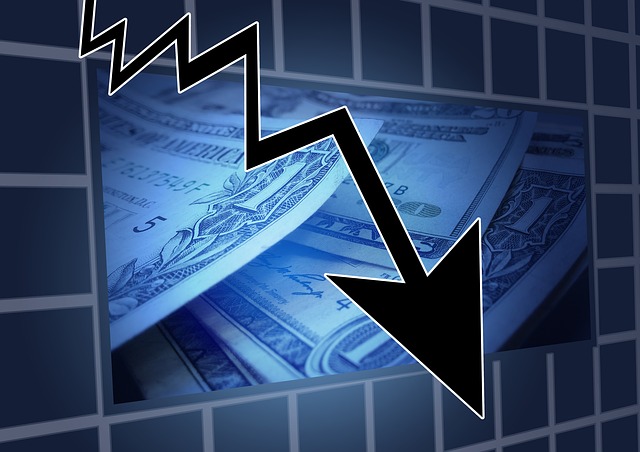
Advertisement
Apparently, my analysis on Bitcoin is making some waves in the Bitcoin community. I didn’t realize Bitcoin people read Natural News, but I guess my analysis has more influence than I suspected. Some of the responses to my recent articles are predictably unhappy about me calling Bitcoin a “bubble” at this point, but others are more thoughtful and are written with counter arguments that assert reasons for why Bitcoin still has a huge upside.
An interesting article on the “thoughtful” side of the pro-Bitcoin debate comes from the Economic Edge blog, where the author explains why he believes Bitcoin is not in a bubble. I’ve reprinted some of that below, and it’s worth a read. Obviously, I disagree with his conclusions, but he’s coming at this from a thoughtful point of view rather than the kind of “hucksterism” now evident from a few other Bitcoin promoters, which is why I’ve chosen to link to his article and quote it here. If you’re trying to understand Bitcoin, you really should educate yourself as much as possible and hear arguments on both sides of the (virtual) coin.
His argument rests on these key points:
- Bitcoin is decentralized.
- Bitcoin is limited in its supply.
- Bitcoin is secure.
- Bitcoin transactions are stored on a public ledger.
My counter-argument: Yes, Bitcoin is decentralied, but Bitcoin is not limited in its supply if the current discussions about ending the 21 million Bitcoin limit are successful. As I pointed out in a mathematical analysis about Bitcoin, the Bitcoin community is aggressively talking about ending the 21 million coin limit so that mining operations can continue to be profitable. This would, of course, dilute the Bitcoin supply and function as a “quantitative easing” operation that essentially steals wealth from current Bitcoin holders.

Secondly, Bitcoin is not secure. Coinbase, arguably the most popular Bitcoin wallet, is right now stealing Bitcoins from Wyoming residents by locking up their accounts. The Mt. Gox Bitcoin exchange fiasco saw the largest Bitcoin exchange in the world steal everybody’s Bitcoins and run off to the Cayman Island (or wherever). The Bitcoin blockchain is also susceptible to 51% attacks and has already suffered numerous “forking” problems. Furthermore, Bitcoin transactions can be traced by simply examining the blockchain. Only a zero-knowledge crypto-currency like Zcash is truly secure.
Yes, Bitcoin is decentralized, and the author is absolutely right that this is the single most important feature of crypto-currencies like Bitcoin. All of us who believe in liberty hope to one day live in a world where we aren’t “tax farm slaves” of the central banks that are pumping out fiat currencies while stealing from the masses. Crypto-currencies almost certainly have a very important role to play in the future of freedom, and the distributed blockchain concept is truly a game changer. That’s why I’ve consistently said all along that I’m rooting for Bitcoin and crypto-currencies. I have even mined Bitcoin for years using a small solar farm in Arizona, and it’s why I’m concerned that Bitcoin is now in a speculative bubble.
The argument of why Bitcoin is NOT in a bubble
How will we know Bitcoin is in a bubble? From the point of view of the author at Economic Edge, it’s when the market cap of Bitcoin reaches that of the United States. As he explains:
Someday Bitcoin will, in fact, be in a bubble. But that day is not now, not even close. The great thing about all cryptocurrencies is that they can and do exist alongside of whatever “money” we use for our transactions. They also exist alongside of gold/silver, and may in fact be drawing money that otherwise would be seeking a store of value there.
So I say, let competition reign! I will use dollars for transactions because I have to (for now), but I will use cryptocurrencies, gold, and silver to park my dollars so that the central banks cannot destroy their value. And that in a nutshell is why Bitcoin is NOT in a bubble, and won’t be for quite some time.
So how will we know that a true bubble has formed? For me I know that cryptocurrencies are the future and that they will trade alongside sovereign currencies and will eventually replace them. I will NOT own any cryptocurrency created or “managed” by a bank. Until the market cap of Bitcoin rivals that of the United States, I will not be convinced that growth has stalled. There are, of course, other signs we can look for
I’m not attacking the author, by the way, as he’s being thoughtful and working to lay out his view on all this. But I disagree with the logic. He is saying that because Bitcoin’s total value is nowhere near the total value of the U.S. stock market — at least I think that’s what he’s saying — it isn’t in a bubble yet. Honestly, that’s not a logical conclusion. Bubbles can be much smaller than the U.S. stock market and still be bubbles. Individual company stocks, for example, experience bubbles and crashes all the time, and they aren’t anywhere near the market cap of the entire nation.
The key property of a Ponzi scheme or a speculative bubble is that the “asset” is being purchased by an ever increasing number of new people being attracted to the speculative opportunity, almost always with the promise of incredibly high returns combined with an irrational certainty that making money is a “sure thing.” Although early adopters of Bitcoin used the currency for transactional purposes, the bulk of new participants (in Asia, notably) are buying Bitcoin for purely speculative reasons. Almost none of them are philosophically aligned with the pillars of liberty, and they don’t understand crypto-currency, the blockchain, transaction confirmation or anything of the kind. To them, Bitcoin is just “the next big thing to jump on” because there’s a lot of hype and mania surrounding it. They have no loyalty to Bitcoin from a philosophical point of view, which is why they will just as easily jump ship and sell Bitcoin in the future when their irrational expectations of “free money” don’t materialize.
The author from Economic Edge explains that Bitcoin advocates who understand the advantages of crypto-currency are buying and holding Bitcoin because they see it as “a store of value.” While that’s true across the Bitcoin purists, it’s not at all true among the newbies who only see Bitcoin as a “buy low, sell high” speculative moneymaking opportunity. They’re not interested in long-term “storage” of value; they simply want to make a quick buck, and they think they’ve discovered a magical source of endless wealth creation in Bitcoin. (This is the same thinking behind Tulip Bulb Mania, by the way.)
With so many bubbles in everything else, where can you hold value that won’t disappear?
The Economic Edge author is correct in pointing out that finding any real store of value is extremely difficult these days, with bubbles everywhere:
With interest rates artificially low (manipulated by central banks), a normal person cannot earn even near the pace of actual inflation with any type of traditional savings account. Bonds are artificially in a bubble, stocks are artificially in a bubble, real estate is in yet another bubble, everywhere one who understands bubble dynamics looks they see a bubble (but not Bitcoin, people are trading in their worth less and less dollars for them). The bubble is the dollar – the world’s “reserve” and “petro” dollar is being drowned by central banks all over the globe, not just our own “FED.”
And thus there is no store of value to be found. This is a terribly ugly situation for people who believe in hard work and saving to get ahead; to someday retire comfortably. Retirees on fixed incomes simply cannot, and will not be able to keep up as the impossible math of dollar debt continues on its vertical ascent.
We would love to love gold and silver, but those too, are manipulated by central banks who own the majority of it. They manipulate and derivative the markets to artificially keep devaluation of the dollar hidden.
Gold, however, really is a store of value because it cannot simply vanish. Gold is physical, and its existence does not depend on a virtual blockchain or a computational hologram like the one powering Bitcoin. While gold prices can be somewhat manipulated by globalist forces, currently gold prices are suppressed, meaning that gold is a bargain, especially if you are buying gold with fiat currency (or Bitcoin, like I did recently).
Gold is also unique — there’s only one element in the cosmos that’s GOLD. But Bitcoin is, frankly, just one crypto-currency among dozens of competing crypto-currencies, and many have features that are far superior to Bitcoin. If the same masses who are currently in Bitcoin decide to switch to another crypto-currency, then Bitcoin collapses. And because Bitcoin has no dividends, no hard assets and no earnings, there’s no real reason to stay in Bitcoin if other options look more profitable to the speculative investor.
Furthermore — and this is a huge point that Bitcoin advocates seem to completely ignore — Bitcoin vanishes in an instant if there’s a nuclear war, EMP attack or grid down failure that takes the internet offline in any significant way. Because Bitcoin only “lives” on the computational hologram, it’s not something that can survive a loss of the internet’s infrastructure. Gold, on the other hand, doesn’t need the internet or even electricity to continue to exist.
Ultimate, the market will tell us who’s right
I continue to assert that when a virtual asset is rising by nearly 100% in just a few weeks while having no hard assets, no earnings, no “products” and no revenues, the rise is clearly a speculative bubble. This is confirmed by a closer examination of the psychology of those entering the Bitcoin bubble right now, particularly in Asia where irrational “groupthink” is especially prevalent. It’s also true among quite an alarming number of Bitcoin “cultists” who are almost exhibiting a kind of religious fanaticism when it comes to Bitcoin, where no logic or reason can shatter their “faith” in the future of Bitcoin. (The degree if irrationality, by the way, seems to closely correspond to the number of Bitcoins a person currently owns… hmmm…)
But the great thing about Bitcoin and the free market of crypto currencies is that the Bitcoin price will tell us all who’s right in the end. Opinions can vary widely, but the price of Bitcoin on any given day is the real measure of “faith” in the system. Right now, Bitcoin prices keep advancing at a pace that any rational investor would call “irrational exhuberance.” Technically, it could continue to climb for quite a while, as I’ve stated in several articles. Yet the downfall of Bitcoin can also happen almost overnight, as soon as the speculative investors come to their senses and realize Bitcoin isn’t a replacement for their retirement savings accounts.
The downfall of Bitcoin will be brutal, and its implosion will likely be used by the mainstream media to discredit all crypto-currencies and depict all Bitcoin promoters as hucksters and con artists who swindled little old ladies in Japan out of their life savings. That’s a small taste of the kind of headlines that are coming from the media when all this unravels. What’s the timing of all this? Impossible to tell, largely because it’s based on the psychology of Bitcoin holders rather than any real, rational measure of P/E ratios, dividends, profits or other typical business cues that simply don’t exist in a crypto-currency. The entire Bitcoin market is, truly stated, held up by FAITH.
In the mean time, I’ve registered the domain BITRAPED.com (not yet live) to document the eventual crash of Bitcoin as an important effort to explore what went wrong and why the mantra of “this time it’s different!” is never really different at all. My concern is that people are going to get really hurt by the Bitcoin mania, and that the crash is going to seriously discredit crypto-currencies for at least a generation. I also believe that those who are hyping up the Bitcoin speculative mania with outrageously high predictions of Bitcoin’s future value are only contributing to the mania that can only end badly.
Submit a correction >>
This article may contain statements that reflect the opinion of the author
Advertisement
Advertisements















